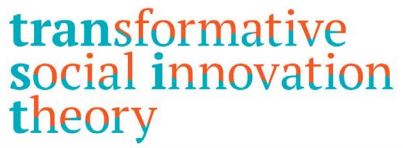How does social innovation relate to social change, and how can social innovation transform society? A team from SI-DRIVE discussed these questions with high-profile social innovation researchers at a two-day theory workshop in Stockholm on May 27/28.
SI-DRIVE and TRANSIT, two current major research projects on social innovation funded by the EU, joined forces with the Waterloo Institute for Social Innovation and Resilience (WISIR) and met for the two-day event, bringing together three world-leading research initiatives that are actively engaged with developing new theory on social innovation and social change. With Jürgen Howaldt, Christoph Kaletka, Dmitri Domanski (TU Dortmund University – sfs), Josef Hochgerner (ZSI Vienna) and Dieter Rehfeld (IAT) representing SI-DRIVE, the objectives of the workshop were to develop a better theoretical understanding of the concept of social innovation and its relationship to (transformative) social change, to forge productive new working relations between the three ‘parallel research processes’; and to identify specific (and strategic) opportunities for future networking activities and research collaborations. These questions were discussed with, among others, Frances Westley (WISIR), Per Olsson (Stockholm Resilience Centre), Alex Haxeltine (University of East Anglia), Flor Avelino, Julia Wittmayer (DRIFT – Erasmus University Rotterdam), and Rene Kemp (Maastricht University).
After two intensive days, all partners agreed to continue the collaboration on a regular basis. One of the next occasions will be the conference “Social Innovation 2015: Pathways to Social Change” on November 18/19 in Vienna (for more information see /?p=1009), where a session will be jointly organized to continue the Stockholm debate.
More information:
SI-DRIVE’s (Social Innovation: Driving Force of Social Change) predominant interest lies in a better understanding of social innovation as a mechanism of change at the micro- and meso-level on the one hand and its relation and contribution to social change on the macro-level. In the Critical Literature Review we come to the conclusion: “There is a need for robust models for the creation roll out and diffusion of social innovations, as well as more knowledge and understanding about how it relates to social change. A theoretically sound concept of social innovation is a precondition for the development of an integrated theory of socio-technological innovation in which social innovation is more than a mere requirement, side effect and result of technological innovation.”
TRANSIT (TRANsformative Social Innovation Theory) is developing a theory of transformative social innovation which situates the phenomena of social innovation within transformative change in the social context. TRANSIT studies how social innovation can bring about empowerment and societal transformation. TRANSIT will utilize a research method which encourages feedback from social entrepreneurs and innovators, policy makers and academics to develop a theory with direct practical relevance. The theory is being developed as a middle-range theory, implying that it is developed based upon insights about social innovation dynamics extracted from over 40 in-depth empirical cases studies and also a survey-based large-N meta-analysis (which will sample some 200 cases). The theory development is also informed by insights and framings from existing theories, including (most prominently) transition theory and a range of social science theories that address different aspects of the dynamics of social change.
WISIR (Waterloo Institute for Social Innovation and Resilience) has been engaged for the last 8 years in seeking to understand the dynamics of transformative social innovation through a complex system lens. WISIR places a particular emphasis on cross scale dynamics and their relation to moments of critical transition and opportunity, positing a role for agency in the cross scale dynamics – a role WISIR refers to as system entrepreneurship. Their work draws from in depth case studies of contemporary social innovations, as historical studies of successful social innovation transformations through time as well as on complex systems theory and its sub-field of resilience theory.

